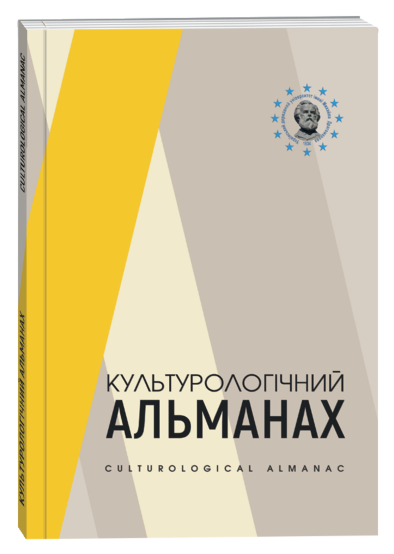COMPONENTS OF THE GNOSEOLOGICAL CONCEPT OF F. BACON: THE DOCTRINE OF THE IDOLS OF THE MIND, WAYS OF KNOWLEDGE AND CLASSIFICATION OF HUMAN KNOWLEDGE
DOI:
https://doi.org/10.31392/cult.alm.2022.3.16Keywords:
gnoseology, empiricism, cognition, induction, inductive thinking, truth, idols of the mindAbstract
The work examines the specifics and components of F. Bacon’s epistemological teaching. An analytical comparison of the understanding of the essential features of the concept formation process is presented. The problem of F. Bacon’s scientific method as a method of deriving theoretical principles, i. e. axioms, from sensory experience is considered in a new way. The content of the transformation of the doctrine of cognition and the very classification of human cognitions is revealed. Special attention is paid in the study to the method of analysis and generalization of empirical data, which F. Bacon called scientific induction, because, according to the philosopher, the doctrine of induction itself should become the “New Organon” of scientific research, overcoming scholastic templates. Emphasis is placed on what true induction should be, through the prism of ideas about what it should not be. F. Bacon understood induction not as a means of narrowly empirical research, which it turned into in his followers, but as a method of finding fundamental theoretical concepts and axioms of natural philosophy. As a method of productive discoveries, induction must work according to certain rules, according to an algorithm. F. Bacon’s goal was to create such a science that would not contemplate, but invent and discover, to create a “second philosophy”. The thinker set before himself the personal task of creating a “second philosophy” and a new method of extracting the truth, he saw the same personal, individual factors in the form of prejudices as an obstacle to knowledge. In one of the parts of his work “On the dignity and multiplication of the sciences”, F. Bacon noted that he by no means wants to glorify sciences or scientists, but writes in order to magnify the wisdom and skill of scientists in their scientific activities. Therefore, F. Bacon did not work for the sake of his own ambition. He was passionately interested in the development of knowledge, as evidenced by the indignation with which he criticized its holders and the attention he paid to proposals for the development of education in general and each science in particular. F. Bacon’s proposals regarding the organization of science, in particular higher education, are relevant. He divided educational activities into external and internal. The external ones include material support for scientific works, especially in those fields that are not sufficiently developed (planned development of science), decent remuneration for the work of teachers, allocation of funds for conducting experiments, building effective internal self-organization of educational institutions, integration of universities, public encouragement for further scientific works etc. In his opinion, it is necessary to reform education from the inside, eliminate and resolve contradictions within the sciences.
References
Асмус В.Ф. Фрэнсис Бэкон. (1969). Избранные философские труды : в 2 т. / В.Ф. Асмус. Москва : МГУ. Т. 1. С. 337–404.
Бичко А.К., Бичко І.В., Табачковський В.Г. (2001). Історія філософії : підручник для студентів вищих закладів освіти. Київ : Либідь. 408 с.
Бэкон Ф. (1972). Новый Органон. Сочинения : в 2 т. / Ф. Бэкон ; под общ. ред. А.Л. Субботина. Москва : Мысль. Т. 2. С. 5–222.
Бэкон Ф. (1977). Сочинения : в 2 т. Москва : Мысль. Т. 1. 568 с.
Історія філософії : підручник / В.І. Ярошовець, І.В. Бичко, В.А. Бугров та ін. ; за ред. В.І. Ярошовця. Київ : ПАРАПАН, 2002. 774 с.
Сапрыкин Д.Л. (2001). Regnum Hominis. Имперский проект Фрэнсиса Бэкона : монография. Москва : Индрик. 224 с.
Суслин М.Я. (1936). Бэкон и его трактат «О принципах и началах». Под знаменем марксизма. № 9. С. 46–63.
Фишер К. (2003). Фрэнсис Бэкон Верлуамский: реальная философия и ее эпоха. История новой философии / К. Фишер. Москва : АСТ. С. 217–536.








